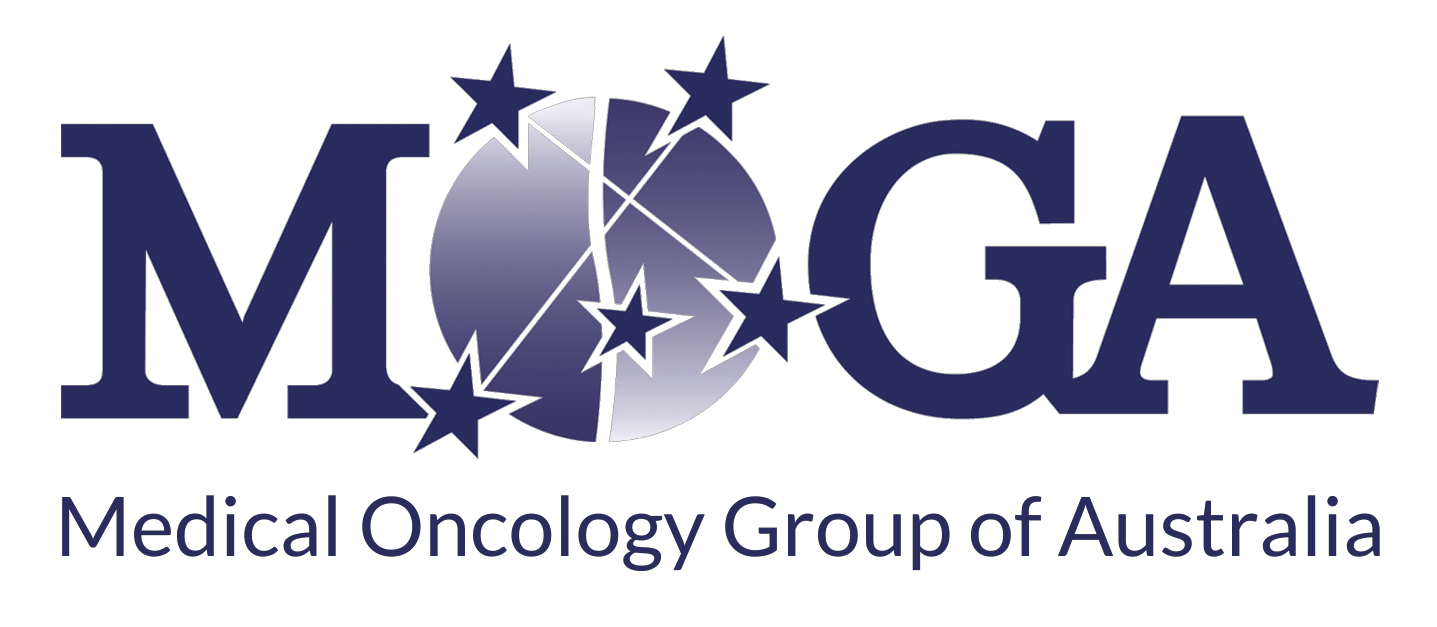
2025 SCIENCES OF ONCOLOGY WORKSHOP
Saturday, 10 May 2025
Venue: The Royal Australasian College of Physicians (RACP)
Nura 1 & 2 at 1 O’Connell Street Sydney NSW 2000
CONVENOR: A/Prof Connie Diakos
A/Prof Diakos is a Medical Oncologist, a member of several cooperative trials’ groups and a senior research fellow in the Bill Walsh Translational Cancer Research Laboratory at the University of Sydney in the Kolling Institute. Her research focuses on identifying prognostic and predictive biomarkers of inflammation in patients with colorectal, ovarian, and other cancers. These markers can be used to help guide decision-making in treatment and predict the likely disease course.
A/Prof Diakos is dedicated to the education and training of the next generation of clinicians. She is a conjoint senior lecturer at the University of Sydney, Co-Director of Training in the Department of Medical Oncology at Royal North Shore Hospital and MOGA Executive Member.
Workshop objectives
The one-day program is designed as real-time education for Australian medical oncology trainees focussing on the emerging developments in the sciences that underpin oncology and how they are transforming clinical practice currently. The educational sessions will include presentations from invited Australian oncology experts.
Target Audience
Up to 40 Australian Medical Oncology Trainees are invited to register for the program. Registrants will need to be MOGA Trainee Members. Trainee Membership is open and complimentary to Medical Oncology Advanced Trainees - see membership criteria and join HERE.
rEgistration
Participants will be provided with all course materials and day catering, including a Networking Function in Sydney. Support for travel and accommodation will be provided for interstate and regional participants. The Program is open to Australian Medical Oncology Trainees who are members of MOGA. A fee of $100.00 will be charged on registration to secure your place in the workshop.
Program*
The Sciences of Oncology Program is one of MOGA’s most popular and well received trainee educational programs. Monitoring and responding to developments in the sciences underpinning oncology research and clinical practice is an essential requirement for all oncology specialists and a vital training area for trainees in medical oncology.
8.30am | Arrival, Morning Tea
9.00am | Apoptosis
9.45am | DNA Damage and Repair - Dr Cristina Mapagu
10.30am | How Chemotherapy Works - A/Prof Connie Diakos
11.15am | Science of Supportive Care - Dr Sarah Bishop Browne
12.00pm | Lunch
12.45pm | Cancer Heterogeneity
1.30pm | Cancer Epigenetics - Dr Razia Zakarya
2.15pm | Afternoon tea
2.45pm | Cancer and the Genomic Revolution - Dr Venessa Chin
3.30pm | Statistics for Oncologists - Ms Helen Barraclough
4.15pm | Oncogenes - Dr Esther Lim
5.00pm | Networking function The Grand Hotel, 30 Hunter St, Sydney
*Program subject to change
SPEAKERS
Ms Helen Barraclough
Helen Barraclough is internationally regarded for teaching biostatistics to non-statisticians having presented in over 30 countries.
Helen has over 15 years of experience in designing, analysing and interpreting Phase I-IV RCTs and observational studies, including as the Lead Statistician of regulatory and reimbursement submissions resulting in new treatment approvals and patient access in multiple countries.
In addition, Helen has been an invited speaker at both international and national conferences, written an invited educational article series for the Journal of Thoracic Oncology, and peer reviews submissions for international journals, international conferences (eg. ASCO Educational Book) and grant applications.
Dr Sarah Bishop Browne
Sarah Bishop Browne is a Palliative and Supportive Care specialist at Chris O’Brien Lifehouse. She has experience caring for patients with complex symptoms in inpatient and ambulatory care settings as well as at home in the community. Sarah works as part of an interdisciplinary team which includes nursing, allied health and complementary therapists to deliver whole person care. By targeting the pillars of health: sleep, stress management, connection and relationships, movement and diet, Sarah believes that patients with cancer can thrive at any stage of their illness journey. Sarah has a research interest in quality improvement, particularly in relation to optimising patient outcomes and safety at transitions of care.
Dr Venessa Chin
Dr Chin is a medical oncologist and post doctoral research officer at The Garvan Institute of Medical Research and St Vincent's Hospital Sydney. She specialises in cancers of the lung and head and neck.
Dr Esther Lim
Dr. Lim is a mid career postdoctoral fellow in the Precision Cancer Therapy (PCT) group at Macquarie University. She has over 10 years cancer research experience with a focus on cancer cell biology and tumour immunology. She is currently investigating the transcriptomic and proteomic profiles of melanoma patients treated with selective kinase inhibitors and immunotherapy. Her overarching research goal is to delineate mechanisms of immune responses and translate these findings to clinical applications, particularly in improving immunotherapy efficacy.
Dr Cristina Mapagu
Cristina Mapagu is a medical oncologist working at the Nepean Hospital, who specialises in the care of patients with gynaecological and breast cancers. She completed her PhD in ovarian cancer genomics with the Gynaecological Oncology Research Group at the Westmead Institute of Medical Research.
She is also the Clinical Research Fellow for the INOVATe (Individualised Ovarian Cancer Treatment Through Integration of Genomic Pathology into Multidisciplinary Care) Program which is a research study that performs tumour genomic profiling to optimise patient selection into novel molecularly-targeted clinical trials and individualise treatment for ovarian cancer patients in NSW.
Dr Razia Zakarya
Dr Razia Zakarya is an expert in epigenetic mechanisms underpinning disease. She harnesses this expertise to work on projects in the realm of therapeutics, early diagnosis, and prognostic determinants in glioblastoma, ovarian, and lung cancer.










